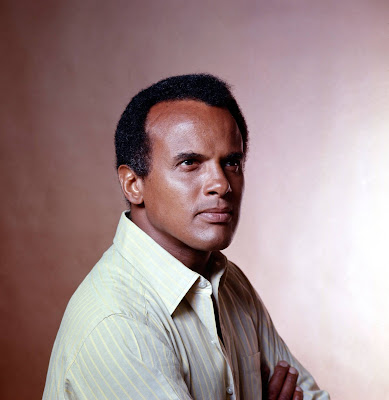March 1, 1973: Pink Floyd released Dark Side Of The Moon.
There are hit albums, and then there’s Dark Side of the Moon. Pink Floyd‘s eternally popular song cycle has sold more than 15 million copies in the U.S. since its release on March 1st, 1973, and more than 45 million units worldwide.
A true colossus of classic rock, the album made its creators – bassist/vocalist Roger Waters, guitarist/vocalist David Gilmour, keyboardist/vocalist Rick Wright and drummer Nick Mason – incredibly wealthy, and ultimately spent a mind-boggling 937 weeks on the Billboard 200.
Read more: Rolling Stone
March 1, 1927: Harry Belafonte was born in Harlem, New York.
Actor, singer and activist Harry Belafonte has achieved lasting fame for such songs as "The Banana Boat Song (Day-O)," as well as for his film and humanitarian work.
Harry Belafonte Harry Belafonte struggled with poverty and turbulent family life as a child. His professional career took off with the musical Carmen Jones, and soon he was burning up the charts with hits like "The Banana Boat Song (Day-O)" and "Jump in the Line." Belafonte has also championed many social and political causes, and earned such prestigious accolades as the National Medal of Arts.
Read more: Biography
March 1, 1975: Bob Dylan's album Blood On The Tracks hit number 1 in America.
In September, 1974, Bob Dylan spent four days in the old Studio A, his favorite recording haunt in Manhattan, and emerged with the greatest, darkest album of his career. It is a ten-song study in romantic devastation, as beautiful as it is bleak.
 |
| Bob Dylan |
Yet the record in question—“Blood on the Tracks”—has never officially seen the light of day. The Columbia label released an album with that title in January, 1975, but Dylan had reworked five of the songs in last-minute sessions in Minnesota, resulting in a substantial change of tone.
Read more: The New Yorker
March 1, 1975: At the Grammy Awards, Olivia Newton-John took Record of the Year for "I Honestly Love You."
There’s something awfully comforting about a well-executed drippy ballad — a sweeping and overbearing work of mawkish sentimentality that knows what it’s doing.
 |
| Olivia Newton-John |
If a drippy ballad hits right, it overcomes whatever natural defenses you might instinctively put up. There’s a pleasure to giving in to a song like that. A song like that hammers clichés hard enough, and sincerely enough, that you let yourself be manipulated. “I Honestly Love You,” Olivia Newton-John’s first American #1, is a pretty well-executed drippy ballad.
Read more: Stereogum
March 1, 1984: Two days after losing to Michael Jackson at the Grammy Awards, Prince recorded "When Doves Cry."
It was during the production of “Purple Rain” that the idea for “When Doves Cry” arose.
Prince The song was commissioned by director Albert Magnoli, who needed one more song to provide the soundtrack for a mid-movie montage that touched on the themes of the film. Prince immediately went to work by himself in the recording studio that night and came back the next day with “When Doves Cry” fully recorded and produced.
Read more: The World
Us & Them
Pink Floyd




No comments:
Post a Comment